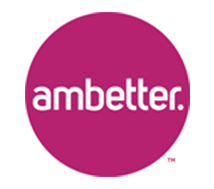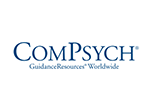How addiction manifests itself can be different for everyone. An individual’s personal experiences and trauma will play a unique role in their condition.
Many times, unconscious thoughts are involved and continue to influence the choices we make in our everyday lives. It is crucial to be able to properly identify these damaging ways of thinking and replace them with more objective, useful thought patterns. Banyan offers cognitive behavioral therapy in Chicago, designed to accomplish these goals and set patients up for success and long-term sobriety.

Cognitive Behavioral Therapy Made Simple
Cognitive Behavioral Therapy (CBT) is a psychosocial therapy program that is widely incorporated into addiction and mental health treatments. This evidence-based practice is guided by research and focuses on realistic and helpful coping strategies for individuals with substance abuse problems or mental illnesses. This type of behavioral therapy addresses problem-solving with an emphasis on changing unhealthy patterns in behavioral.
Cognitive-behavioral treatment was originally geared towards treating major depressive disorder but has since expanded and is used to treat a variety of conditions, including post-traumatic stress disorder (PTSD), anxiety, eating disorders, and substance abuse disorders. Mental illness and addiction are often linked, and a person with both conditions is diagnosed with a co-occurring disorder. In addition to our dual diagnosis treatment, cognitive behavioral therapy can be effective for recovery.
What to Expect During Therapy
As a part of this program, patients will partake in one-on-one sessions with their therapist. Each of these sessions is formulated according to the client’s progress. Throughout cognitive behavioral therapy sessions, the client and therapist actively work together to identify any negative thought patterns behind the individual’s condition and develop effective strategies for overcoming them. This CBT program allows patients to gain a set of new cognitive and behavioral principles that they can apply in all life settings after rehab.
There are a number of techniques that are used to do this:
- Focus on recognizing damaging thought patterns: While this can be difficult, taking the time to be self-reflective can provide a whole new perspective throughout the treatment process.
- Practicing coping mechanisms and skills: A majority of the skills learned are done so with the goal of improving their responses in real-life scenarios. This can be done through rehearsing methods to deal with triggering social situations.
- Setting realistic goals: Therapists can teach patients how to identify their own personal goals as a means to distinguish their short and long-term aspirations. This provides a sense of agency and self-assurance that contributes to reworking negative thought patterns.
- Practice problem solving: Patients will learn to identify a problem, generate a collection of possible solutions, evaluate these solutions, and implement them.
- Self-monitoring: This technique involves tracking one’s own symptoms and behaviors, typically through a diary, which can then be shared with the therapist. This keeps the professional informed in addition to giving patients the opportunity to work from their personal, real-world experiences.
At our Illinois drug rehab, we understand that each client has different needs, which is why every session is specifically designed for them.
What Does a Cognitive Behavior Therapy Therapist Do?
A Cognitive Behavioral Therapy (CBT) therapist plays a crucial role in helping individuals overcome substance use disorders by addressing the underlying thoughts, feelings, and behaviors associated with addiction. Here’s an overview of what a CBT therapist does:
- Assessment:
- Conduct a comprehensive assessment to understand the individual’s history, patterns of substance use, and associated cognitive and emotional factors.
- Identify specific thoughts and behaviors contributing to the addiction.
- Goal Setting:
- Collaborate with the individual to establish clear and achievable treatment goals.
- Define specific, measurable objectives related to changing harmful thought patterns and behaviors.
- Education:
- Provide psychoeducation about the relationship between thoughts, feelings, and behaviors.
- Help the individual understand how certain thoughts may contribute to substance use.
- Cognitive Restructuring:
- Work with the individual to identify and challenge negative thought patterns and beliefs associated with addiction.
- Facilitate the development of healthier, more adaptive ways of thinking.
- Behavioral Techniques:
- Teach and implement coping skills to manage cravings, stress, and triggers for substance use.
- Use behavioral strategies, such as self-monitoring, to identify and modify patterns of behavior.
- Skill Building:
- Assist in the development of practical skills for problem-solving, decision-making, and emotion regulation.
- Encourage the use of positive coping mechanisms as alternatives to substance use.
- Relapse Prevention:
- Develop a relapse prevention plan to identify potential risks and strategies to avoid relapse.
- Provide ongoing support and skills training to reinforce relapse prevention techniques.
- Homework Assignments:
- Assign therapeutic homework, such as journaling or practicing new skills in real-life situations, to reinforce therapeutic concepts between sessions.
- Monitoring Progress:
- Regularly assess and monitor progress toward treatment goals.
- Adjust therapeutic strategies as needed based on the individual’s response and evolving needs.
CBT therapists work collaboratively with individuals to empower them with the skills and insights necessary for sustainable recovery. The focus is on changing patterns of thinking and behavior that contribute to substance use and replacing them with healthier alternatives.
What Principle Underlies Cognitive Behavioral Therapy?
The basic principle that guides this method is that nearly all behavioral and emotional reactions are learned, which means they can also be changed. Those that utilize this treatment method seek to rework the ingrained negative thought patterns that play a part in our emotional and social struggles. When a patient participates in cognitive behavioral therapy in Chicago, they are given the opportunity to take a good hard look at the cycles they are stuck in and how their unconscious thoughts contribute.
These thought patterns play a significant role in a variety of conditions and scenarios, from depression to anxiety to addiction and even our mood in general. More often than not, there is an experience (or multiple experiences) that shaped how we view the world, as well as how we think it views us. In many cases, these traumatic experiences trap us in negative cycles, sometimes as a means to protect ourselves and sometimes just to forget our struggles.
Even if a person works to forget what happened in the past, an unconscious part of them could still be factoring this into how they interact with the world around them. Through CBT, these thoughts are verbally identified, challenged, and replaced with more realistic, beneficial ideas. This is done in the hopes of giving people genuinely beneficial outlooks that they can continue to use even after rehabilitation concludes.
Our Chicago Cognitive Behavioral Treatment Center Can Help
The goal of this program is to teach our patients how their behavior impacts their addiction and mental health, as well as healthy ways to cope with stressful situations. Because negative thoughts and emotions are the top contributing factors to addiction and mental illness, we especially focus on coping strategies in cognitive behavioral therapy. It’s easy for people with an addiction or mental illness to recycle these negative thoughts. Eventually, their condition will become apparent in their behavior and outward appearance. Addiction treatment and behavioral therapy can help them recover before it reaches that point.
Although we understand how beneficial a cognitive behavioral therapy program can be for a patient’s recovery process, additional help is often required for a full recovery. Our cognitive-behavioral method is just one of the many effective therapies offered at our Illinois rehab facility. At our Chicago addiction treatment center, we believe that exposing patients to a variety of methods and programs helps them address each facet of their condition and achieve recovery. Addiction and mental illness are often linked to a variety of other issues that may fall through the cracks if they aren’t treated. We want our patients to leave our rehab facility with all the necessary tools and strategies needed to sustain their recovery journey on their own.
If you or a loved one is battling with a substance abuse disorder or mental illness, cognitive behavioral therapy in Chicago can help. Contact us today for more information about CBT and additional programs available at Banyan’s Illinois addiction treatment center.






































